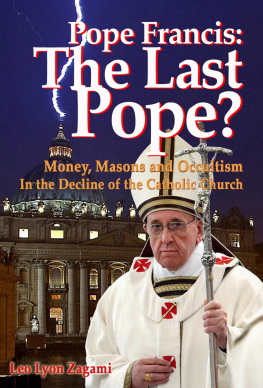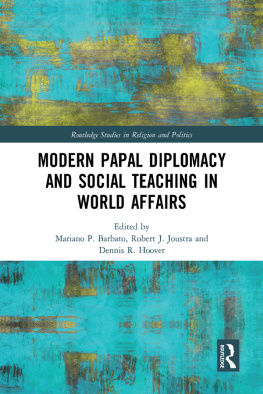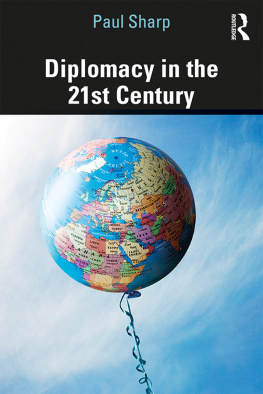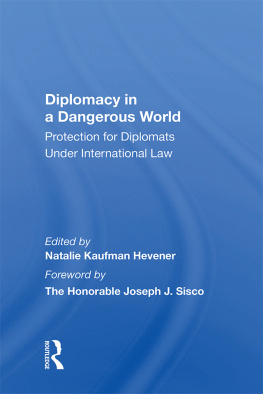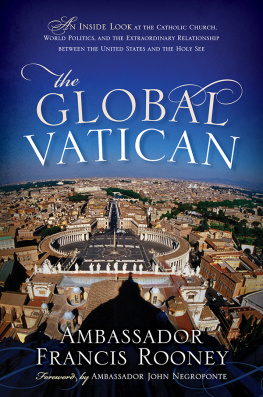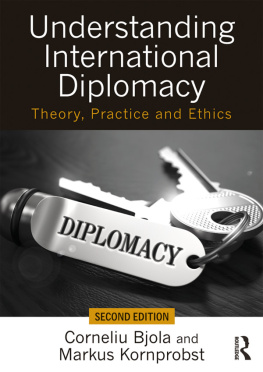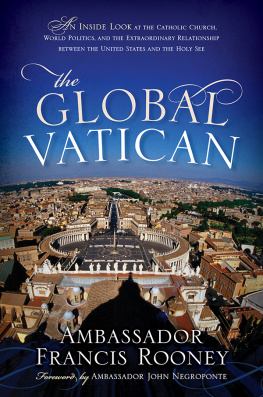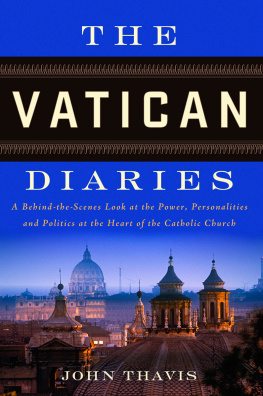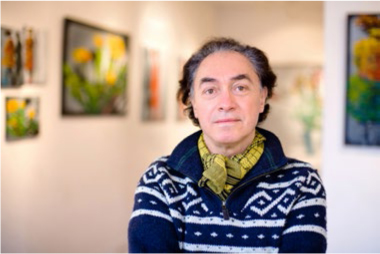Victor Gaetan, PhD, has served as international correspondent for Catholic News Service and the National Catholic Register. He contributes to Foreign Affairs and America magazine. For over twenty years, he has filed stories from countries in turmoil: Bosnia-Herzegovina, Cuba, Lebanon, Kosovo, Peru, Turkey, and Ukraine as well as from Hong Kong, Korea, and Taiwan. He received numerous awards from the Catholic Press Association of North America and has written for publications ranging from Art & Auction to Le Figaro. Gaetan graduated from Sorbonne University in Paris with a license in Byzantine and Ottoman studies. He has a PhD from Tufts University in ideology in literature and a masters in International Law and Diplomacy from the Fletcher School. More information can be found at: victorgaetan.org.
T his books journey began in Romanias Carpathian Mountains in a small Catholic Church dedicated to St. Anthony of Padua. Bombed by the allies during World War II, shuttered by Communists (brought and installed by Soviet troops), priestless for close to 20 years, the work of a small group of dedicated Vatican diplomats in the 1960s and 1970s gave little St. Anthonys new life and drew me in. A dedicated, powerful cantors voice was tolerated, and the beautiful sound of an organ was allowed. Yet, they were enough and so liberating for the soul and the mind of a child to plunge into a dream: Dare, take off, make it to St. Anthony of Paduain Italy! The cantors voice encouraged me.
When I met some of the priests behind Ostpolitik decades laterCardinals Giovanni Cheli, Luigi Poggi, and Achille Silvestrini, as well as Archbishop John Bukovsky of the Divine Wordtheir great humility and wisdom made me want to understand the world as they saw it: sinful and corrupt yet ever capable of renewal and hope. Conversations with these greats were my first peek over the wall. As a result, Ive spent some part of the past 15 years researching the story of the Holy Sees diplomatic practice while writing for Catholic News Service, National Catholic Register, Foreign Affairs, and America magazine.
During an unforgettable evening car tour of Vatican City in 2019 with Cardinal Francesco Monterisi behind the wheel, following a free-wheeling conversation about his assignments in Bosnia-Herzegovina, Korea, and a short mission to Transylvania, I finally felt the indwelling of Spirit sufficient to complete Gods Diplomats.
This text benefitted from close review by two extraordinary editors who I count as friends: Barb Fraze, international news editor at Catholic News Service (one of my first, most encouraging editors), and dexterous Nathaniel Brown, who read the manuscript and made crucial suggestions. Even earlier, Dylan Colligan at Javelin, helped me conceptualize the book and Ruth Olsen set the first style guidelines.
For many years, Jeanette DeMello, editor-in-chief of the National Catholic Register stood by me, together with Tom Wehner and Tom McFeely. The Register allowed me to cover the work of the Church in over twenty countries, especially during periods of peril. Im also grateful to brilliant and thorough Foreign Affairs editors: Sigrid Von Wendel, Katherine Allawala, Nathaniel Brown, Park MacDougald, Laura Secor, and Kanishk Tharoor. Each taught me how to make a sharper, more provocative, evidence-driven argument.
At key moments, valued peers encouraged the project. Thanks go to John Burger, Austen Ivereigh, Christopher Lamb, Robert Mickens, and Francesco Sisci in particular. Having people I admire affirm this effort has touched me deeply. Prominent among them are Carlos Eire, Professor of History and Religious Studies at Yale University and Nicolai Petro, Professor of Political Science at the University of Rhode Island. Fr. James McCann, S.J., a Russia expert, and Catholic chaplain at Georgetown Law School, has been a peerless adviser. Helpful too has been Fr. Jack Hurley, my parish priest at St. Matthews Cathedral who started his career as a foreign service officer with the US State Department! Among incisive diplomats I consulted, Edward Stafford proved especially trenchant about working with Vatican counterparts.
Insightand the gift of timeflowed from an invaluable elite: presidents past and present of the Pontifical Ecclesiastical Academy, the storied Accademia. Cardinal Justin Francis Rigali invited me to Tennessee. Archbishop Giampiero Gloder sat with me in Rome. Archbishop Joseph Marinos generosity arrived via email.
Ambassador James Creagan provided precious first-hand information regarding US-Vatican exchanges during moments of crisis between the two sovereigns. Ambassador Francis Rooney (author of Global Vatican, which I admire) shared insight and encouragement despite immense congressional duties. Ambassador Charles Freeman, President Richard Nixons lead China translator shared indispensable tenets of diplomacy #101, ominously no longer followed by the United States.
For each case study chapter in , I am happy to acknowledge key people. The Ukrainian-Russian conflict cant be fathomed without tackling the religious dispute and talking to all parties. I am especially thankful to the following experts who provided me with thoughtful presentations of their views: Cardinal Kurt Koch; Bishop Brian Farrell; Archbishop Thomas Gullickson, nuncio to Ukraine; Archbishop Mechislav Mokshinsky of the Latin Catholic Church in Ukraine (former secretary to John Paul II and Benedict XVI); Fr. Hyacinthe Destivelle, OP; Ukrainian Greek Catholic Church (UGCC) Major Archbishop Sviatoslav Shevchuk; Cardinal Lubomyr Husar, who preceded Shevchuk as UGCC leader; and Archbishop Borys Gudziak. Romanian Archbishop Ion Robu and Bishop Petru Gherghel shared important insights into this conflict too.
From the Orthodox Church, controversial Ukrainian Orthodox Metropolitan Filaret has played an unmatched role and it was interesting to meet him in person. More constructive have been leaders I learned from such as Archimandrite Elpidophoros of America (former chief secretary of the Patriarchate of Constantinople) and Metropolitan Nifon of Tirgoviste. I also benefited from frank comments provided by French and German diplomats following the Ukrainian-Russia conflict closely.
A highpoint of my life was getting to know the late Oswaldo Pay, his wife Ofelia and daughter Rosa Maria in Havana in 2010. The murder of Oswaldo and his assistant Harold Cepero two years later was a monstrous act of evil. While in Cuba, I met with brave women marching as Ladies in White, and with dedicated lay Catholics and priests, who asked not to be named in order to protect their charitable work with the elderly, disabled, and sickprograms the state was fully aware of but pretended didnt exist.
A remarkable source for the Cuba chapter has been Bishop William Murphy, who was Cardinal Bernard Laws point man for Cuba in the 1980s and 1990s. He shared with me events from his trips to Cuba and conversations with Fidel Castro, Cardinal Jaime Ortega, as well as a range of high-ranking US and Cuban officials involved in the US-Vatican-Cuba game. Alberto de la Cruz, founder of BabaluBlog.com, has provided useful insight otherwise not available, as did Germn Miret, an astute Cuba watcher.
Most sources regarding Kenya insisted on anonymity. However, my wonderful friend, Fr. Barthelemy Bazemo, a leading light among the Missionaries of Africa, helped me identify good people to verify and affirm the chapter.
Regarding peace building in Colombia, Im indebted to Fr. Adrian Marina Salcedo, SJ and Liduine Zumpolle for reading, correcting, commenting, and offering additional sources. Sincere thanks to Ben Schenik of Pax Christi Netherlands for trusting me with original, never-before-published documents related to meetings with Fidel Castro and other work in Cuba and Colombia.


